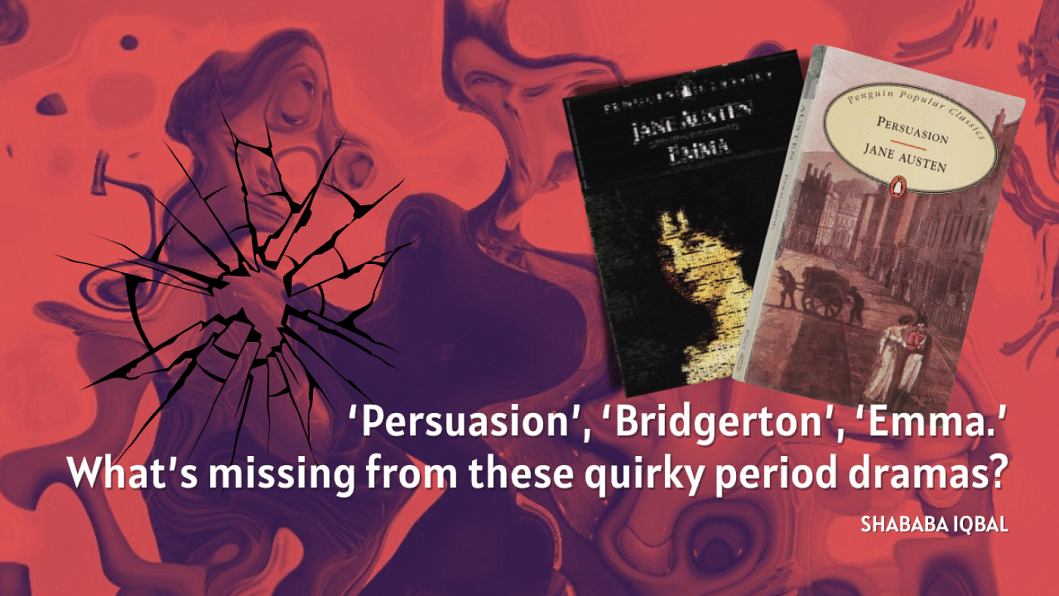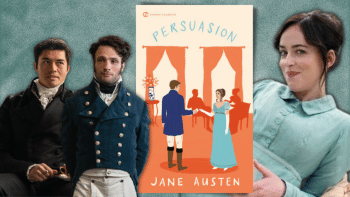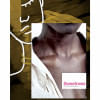‘Persuasion’, ‘Bridgerton’, ‘Emma.’ What’s missing from these quirky period dramas?

The '90s offered something of a renaissance of period dramas, particularly with meticulous screen adaptations of Jane Austen's beloved novels. While filming 1995's Sense and Sensibility, Emma Thompson, who wrote the screenplay and starred as Elinor Dashwood, agonised over line changes and refused producers' pleas to "novelise" her script and sell it as an "update".
Fast forward two decades and a new type of period drama is taking over today. Filmmakers are ditching accuracy and precision in a move to cater to millennials and Gen Z audiences. Young and "good-looking" actors are cast, contemporary music is played in ballroom scenes, and the flirting and sex are ramped up. From the language to the set design to the score, forays into period drama are increasingly spiced up with modernity to both delightful and disappointing effects.
The Austen-inspired Bridgerton (2020)—Netflix's Regency-set romance based on Julia Quinn's novels published from 2000 to 2006—uses candy-coloured costumes and an idealised depiction of race in society, featuring prominent Black and South Asian characters and motifs like string quartets playing Ariana Grande covers instead of period waltzes. Lady Whistledown, A Gossip Girl-esque scandal sheet narrator, dominates the plot.
Since its release, Bridgerton has proven to be as controversial as it is popular. It explores race and representation in the early 19th century through the Duke of Hastings, a Black man named Simon Basset (Regé-Jean Page) in Season 1, and Kate Sharma (Simone Ashley) in Season 2, an Indian. But in a rush to be inclusive, it glaringly overlooks nuances. A controversial scene in Season 1 depicts the sexual assault of a Black man by a white woman in a context where the inverse was a narrative used to kill Black men. This is appalling, to say the least.
"Sharma", Kate's surname on the show in Season 2, is a common name among upper-caste Indians—and herein lies the problem. In celebrations of representation, the notion of being an "Indian" continues to be cemented in the upper-caste Hindu mould in popular culture and media. Even though it is appreciable that Hollywood is showcasing diversity in a genre that has long been greatly fronted by white characters, in its bid to be a light, frothy, and visually pleasant show, Bridgerton does not meaningfully address these complex issues.
Emma. (2020), starring Anya Taylor-Joy as the titular smart, wealthy, and meddlesome matchmaker, is a great example of a period film that incorporates subtle contemporary influences into the personality and costume design of characters. The adaptation is distinguished by its commitment to a bright aesthetic, as seen in Emma's flashy mustard yellow gown and extravagant black hat with yellow feathers—it all looks very fitting for an Instagram feed.
Emma and Mr Knightley's relationship is also edgier in the film and more socially acceptable. There are snarky retorts, dance scenes without gloves, fleeting male nudity, and kisses when the girl's father is present in the room. Emma has her widowed, neurotic father to care for—or is that just her excuse to live as free of constraints as any man? It's a radical notion for the Regency era, and Taylor-Joy relishes in Emma's snobbery and callousness, confounding expectations of how a young lady of fortune should behave. The period at the end of the film's title is a self-aware move that fits in with the film's youthful appeal and signals an aesthetic departure from the genre and the source material.
Such playfulness is in keeping with the spirit of the book and with Austen's humour. Nevertheless, Emma. falls at a risk of being so highly stylised and goofy that it loses many of the deeper layers of the novel.
Meanwhile, Netflix's Rebecca, based on the Daphne du Maurier classic and released in the same year as Emma. and Bridgerton, largely disappoints. It intends to attract new, younger fans with a distinctly romantic, colourful, and provocative retelling. But the bland screenplay lacks the dark and sinister tone of the source material and denounces du Maurier's ornate writing.
Meanwhile, three-season Apple TV+ original Dickinson is a delightfully weird amalgamation of contemporary and Victorian sensibilities, centred on a teenaged version of the iconic American poet Emily Dickinson, who gained fame after death as most of her poems (almost 1,800 in number) were published posthumously.
Starring Gen Z actor Hailee Steinfeld in the lead role, Dickinson features a passionate romance between Emily and her sister-in-law Sue, with whom the poet shared a complicated relationship that was most likely romantic. Most of what we know about the great poet's life is from letters she wrote and some that were written to her. The show takes a liberal approach to Emily's story, imagining her as a lively, rebellious goth who wants to throw wild parties when her parents are out of town. She is also struggling to follow her dreams of becoming a writer at a time when female writers were frowned upon. Each episode is themed around and titled after the first lines of Emily's poems.
Dickinson looks like a traditional period drama, in every aspect. The production design is precise and historically accurate to mid-19th century Massachusetts, when and where the real Emily lived—but the story is set to a soundtrack populated by the likes of Lizzo, A$AP Rocky, and Billie Eilish. Grown-ups speak a more archaic style of English, while the protagonist and her peers speak like millennials: "This is such bullshit," Emily says, upon being reminded that her older brother can't fetch water because "Austin is a boy". The advantages of the willfully modern dialogue and music are clear: Emily is now a highly relatable character.
Most recently, the Netflix adaptation of Jane Austen's Persuasion (2022) plays like a romantic comedy rather than a complex, sombre story about second chances at love. In the film, protagonist Anne Elliot (Dakota Johnson) ends up in several contrived circumstances on her quest to win back her "ex". Breaking the fourth wall, she cheekily addresses the audience after comments from her family members, which seems nonsensical for the introverted and dejected Anne we know from the novel. She has been turned into the awkward yet sassy and vivacious heroine that has been popping up in recent, contemporary period dramas. Trying too hard to be quirky, the film widely fails to capture the tone of the book. This points to a prevailing issue in adaptations of classic novels today where studios seem to think female characters need to be glossed with a "zany" and "feisty" persona in order to be relevant.
Persuasion would have benefited from taking a page out of Greta Gerwig's Little Women (2019), which reshapes the Louisa May Alcott novel with a touch that feels both faithful and radical. The director gives us the warm, homespun pleasures and emotional satisfactions of Alcott's beloved story—the period costumes, the sisters' fireside chats and scuffles, their verbal and emotional sparring matches with Laurie, the boy next door—but she also approaches the text from a fresh perspective and even considers its flaws and compromises.
Alcott famously had a different ending in mind for Jo from the more conventional, romantic one she was pressured into writing by her readers and her publisher. Gerwig redresses that wrong through a directorial decision that bridges the gap between the expectations of readers then and the desires of audiences now, with female ambition at the centre. Her adaptation makes modifications to the novel, but still revels in its period aesthetic and Alcott's characters. It speaks to our current interest in rediscovering what's contemporary and interesting in these old texts, without needing to stray too far from what they are.
It is worth pointing out that we are not just turning to classic literature and period dramas for relatability. We are more able than ever to engage thoughtfully with the social commentary, irony, and modern resonances in these narratives, and we are also excited about their plots and complex character arcs. Such texts, based on social settings from the past, help us perceive a country's history and social make. They offer a glimpse into cultures and heritages that are long forgotten while giving us an opportunity to understand the significance of historical references and classical allusions.
In warping period pieces on screen into colourful, digestible, and clickable content for millennial and Gen Z viewers, filmmakers are doing a disservice not only to historical and literary texts, but also to the audience that they are, apparently, so desperate to attract.
Shababa Iqbal is a contributor to Daily Star Books. Email: [email protected].

 For all latest news, follow The Daily Star's Google News channel.
For all latest news, follow The Daily Star's Google News channel. 












Comments